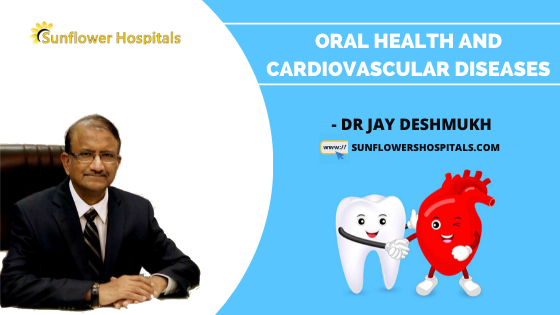ORAL HEALTH AND CARDIOVASCULAR DISEASES:- Maintaining oral health is extremely important to maintain overall good health. You should brush your teeth twice daily and use floss regularly. There is some evidence to suggest a link between dental hygiene and cardiovascular diseases. If you have diabetes and poor dental hygiene, it may affect your heart adversely.
What are the benefits of proper oral care?
You can reduce the chances of developing dental decay, inflammation of the gums and oral infections such as abscess formation by taking good care of your teeth and gums. Optimal dental care includes making sure den• tures fit properly, regular-ly flossing your teeth, brushing your teeth twice daily and seeking professional dental care every six months.
Will taking care of my teeth prevent heart diseases?
There is some relation between oral health and heart disease, though more research is necessary. However, studies have shown that gum dis-ease that is periodontitis is associated with an increased incidence of heart disease. Poor dental hygiene increases the risk of bacterial infection in the bloodstream which can affect the heart valves. If you have an artificial heart valve, then you need to be extra careful. This is known as bacterial endocarditis. Tooth loss pat-terns are also connected to coronary artery disease.
What about diabetes, cardiovascular disease and dental hygiene?
There is a strong connection between diabetes and cardiovascular disease. People with diabetes are known to benefit from periodontal treatment.
Why would cardiovascular disease and poor oral health be connected?
Though antibiotics are not proven to reduce cardiovascular risk, infection of the gums and teeth are known to trigger a cascade of vascular damage throughout the blood vessels of the body including the heart and the brain. It is the body’s immune response responsible for this.
Besides cardiovascular disease, is there any other association?
The relationship between overall health and dental hygiene may not be limited to only cardiovascular disease. Studies have linked periodontal disorders and Rheumatoid arthritis. A study in 2016 found an association between pancreatic cancer and periodontal diseases. However, as in cardiovascular disease and dental hygiene, an association does not mean causation.
If the association is speculative then what is the advantage of good oral hygiene?
Whether the link is direct, indirect or coincidence, a healthy mouth and to keep it that way by not chewing tobacco, paan and betel nuts and avoiding smoking can help you to keep your teeth intact. That perhaps is a valid reason to keep your mouth healthy Perhaps it may help you to have other benefits though it remains speculative as of today.
What about the study presented at the American Heart Association in Chicago indicates?
A person’s tooth brushing habits are associated with their risk of heart attack or dying from a stroke or heart attack. Those who brush less than twice a day or for less than two minutes had a three-fold increased risk compared to those who said that they brushed at least twice daily for two minutes. It is possible that people who are very attentive to their oral health are also very attentive to other aspects of their health.
What about gum health and inflammation?
Science supports a potential relationship between gum health and cardiovascular disease. In gum dis-ease, the body may be in a continuous state of intim• mation and this may be a very powerful predictor of cardiovascular disparage
What precautions do you need to take before you undergo dental treatment in case you have diabetes or hypertension or cardiovascular diseases?
Make sure that you carry all the records with you. Blood thinners like Aspirin, Clopidogrel or oral anticoagulants may be advised to be discontinued before dental extraction. Close coordination between the patient, dentist and the treating doctor for diabetes, hypertension and cardiovascular diseases is suggested. Some drugs for hypertension or angina may cause swelling of the gums. Make sure that your blood glucose and blood pressure are under control if you are undergoing dental care.
Can dental infection be a risk factor for acute myocardial infarction?
A study published in the European Heart Journal has revealed an association between dental infections, acute myocardial infarction and chronic coronary heart disease. A large epidemiological survey revealed an association between missing teeth and coronary artery disease. The severity of dental infections correlated with the extent of coronary atherosclerosis. The mechanism behind the association between dental infections and coronary disease could be the effect of bacteria on the cells taking part in the pathogenesis of atherosclerosis and arterial thrombus-sis. Brushing your teeth at least twice daily for minimum 2 minutes each and regular use of floss and a visit to your dentist twice a year for a routine checkup is advisable. Controlling your weight, blood pressure, blood sugars and avoiding tobacco in all forms and regular exercises will help you to prevent heart diseases.


